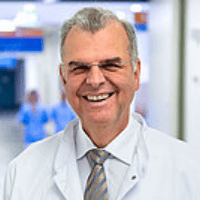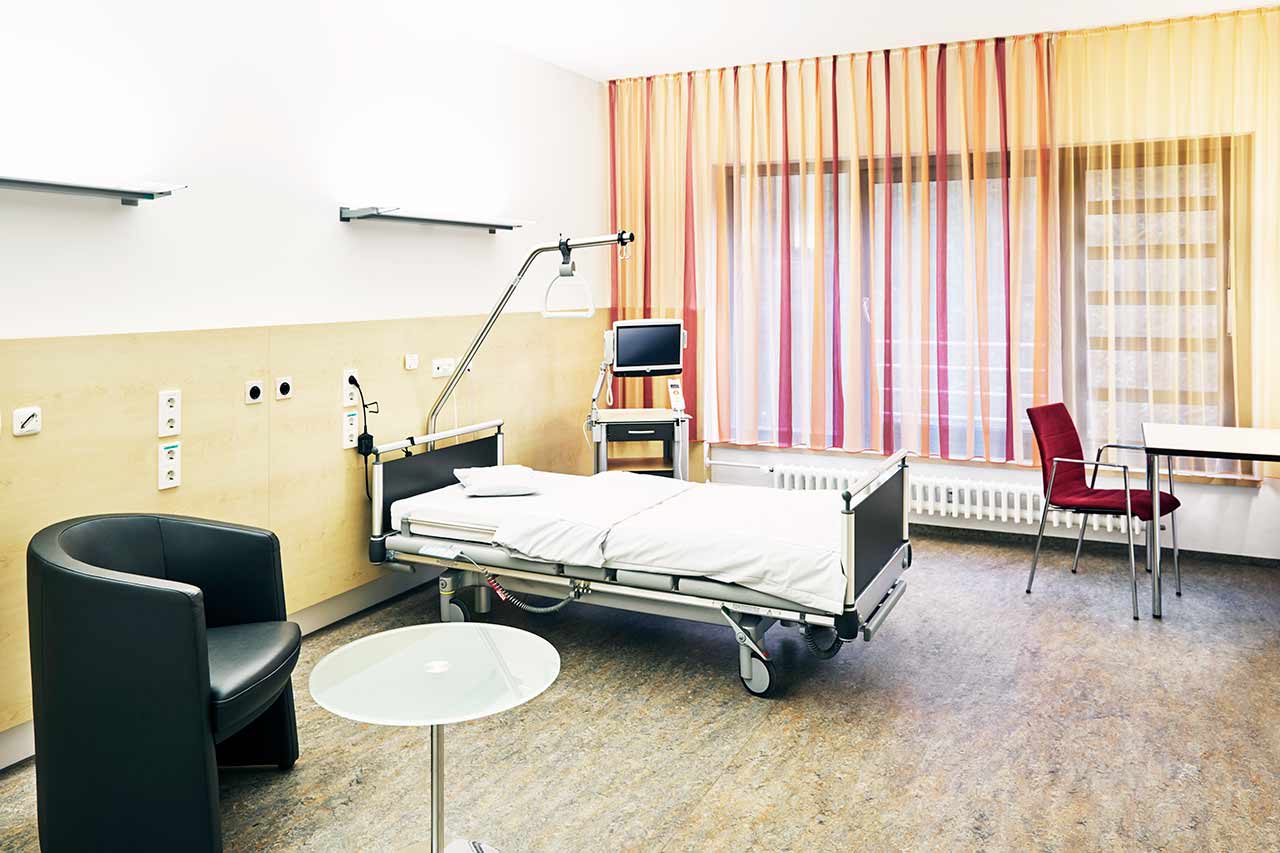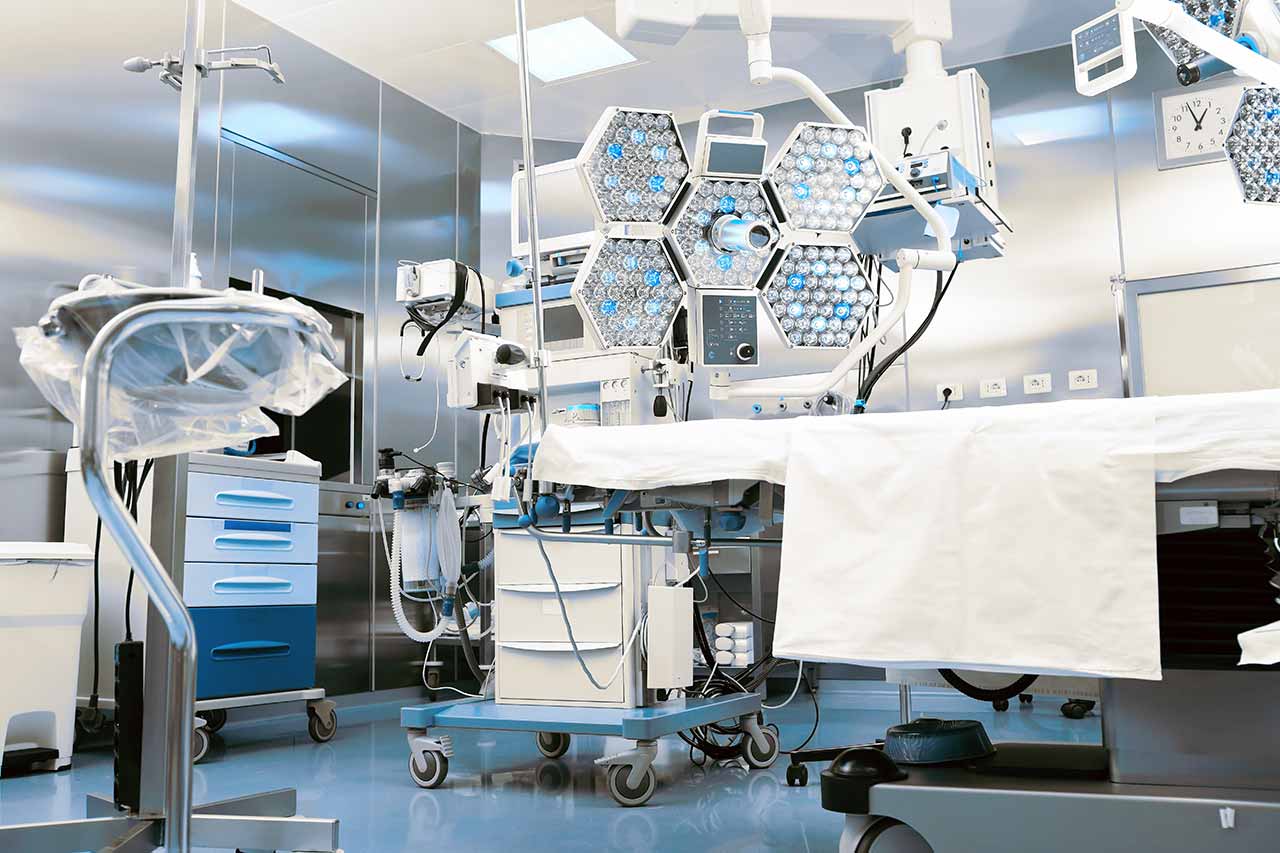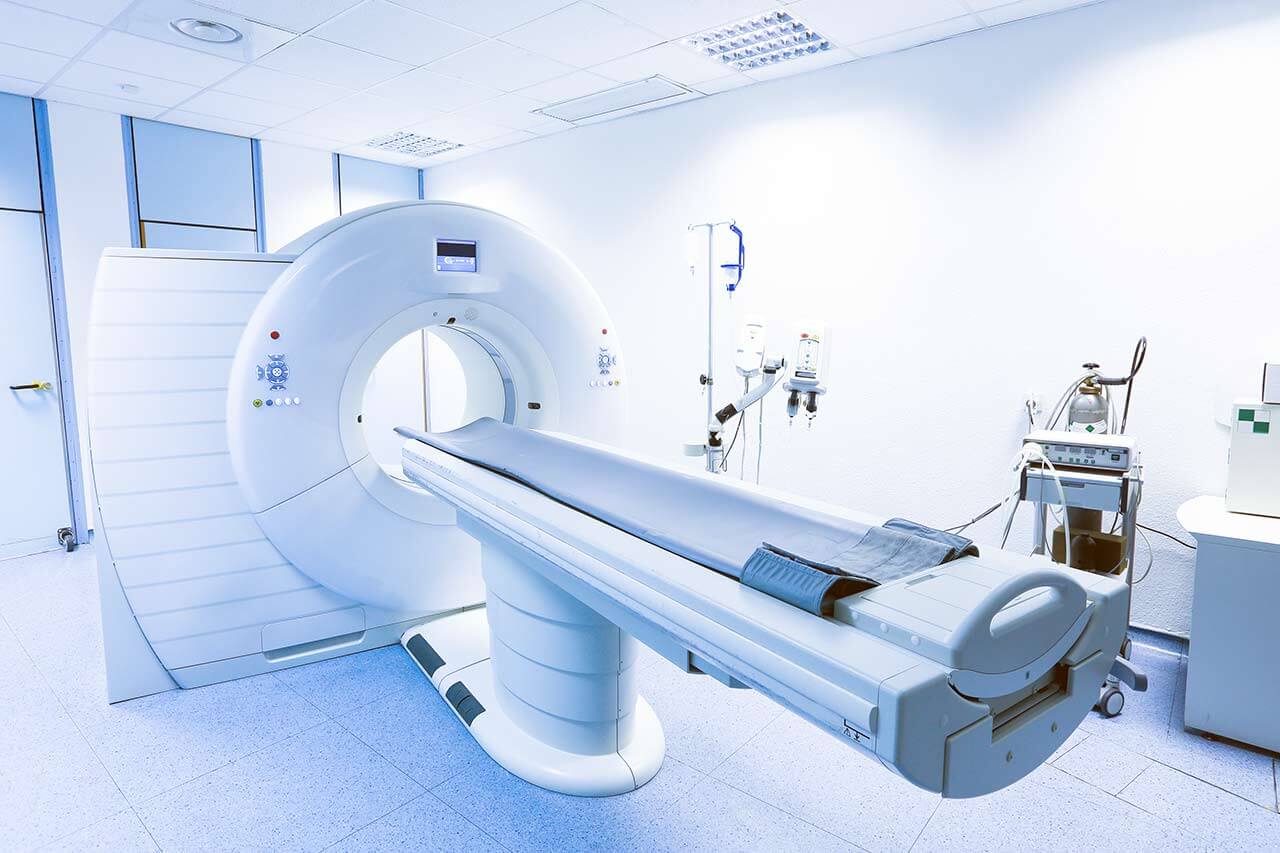
About the Department of Gastroenterology, Hepatology, Endocrinology, Diabetology and Internal Medicine at Hospital Kassel
The Department of Gastroenterology, Hepatology, Endocrinology, Diabetology and Internal Medicine at the Hospital Kassel offers the full range of medical services for the diagnostics and treatment of any gastrointestinal diseases, including pathologies of the liver, biliary tract and pancreas. In addition, the department provides treatment to patients with diabetes mellitus, endocrine diseases and hormonal disorders. Of particular interest is the treatment of gastrointestinal cancers, which is carried out in close cooperation with specialists in the field of general and abdominal surgery, oncologists, radiologists, etc. The department offers advanced rooms for endoscopic diagnostic and therapeutic procedures, which are the "gold standard" of modern gastroenterology. For the outstanding achievements in clinical practice, the department is certified in accordance with DIN ISO 9001:2015. The medical facility is recognized as the certified Colon Cancer Center and Pancreatic Cancer Center, as well as the Diabetes Center. The patients can be provided with both inpatient and outpatient medical care. The highly professional doctors with a wealth of experience and profound specialized training take care of the patients' health. The Chief Physician of the department is Prof. Dr. med. Frank Schuppert.
The department's gastroenterologists specialize in the diagnostics and treatment of diseases of the esophagus, stomach, small and large intestines, liver, biliary tract and pancreas. The primary focus is on colon and pancreatic cancer therapy within the specialized center. If a patient has cancer, his clinical case is considered during the interdisciplinary tumor board, which involves not only gastroenterologists, but also oncologists, radiologists, radiotherapists, surgeons and other specialists. The doctors cooperatively elaborate the optimal treatment regimen, taking into account the patient's particular clinical indications, the type of tumor, its stage, localization, as well as the rate of cancer progression. In the case of detection of pathology at the advanced stages, a surgical intervention is often performed as soon as possible. Should surgical treatment be required, the doctors may use sparing laparoscopic techniques. As with other types of cancer, chemotherapy and radiation therapy are actively used during the treatment. The department's specialists provide treatment in accordance with the current clinical protocols and recommendations of the professional societies.
Diabetology is represented by a highly qualified team of doctors who specialize in the treatment of type 2 diabetes mellitus in adults. Since diabetes mellitus is still an incurable disease, the only therapeutic method remains glucose-lowering therapy. In addition, diet therapy and quitting bad habits (drinking alcohol, smoking, etc.) play a key role in the control of pathology. Therefore, the department offers a special school for patients with diabetes mellitus, the main task of which is to teach patients a new way of life with the disease. The patients are instructed on the use of disposable syringes and syringe pens for insulin self-injection. They are also taught how to store insulin and adjust dosages. The department's nutritionists hold consultations for patients with diabetes mellitus to provide comprehensive information on the proper diet in order to avoid high blood sugar levels and, accordingly, an exacerbation of pathology. If required, the patients are also provided with psychological care.
The department's therapeutic options are complemented by the diagnostics and treatment of endocrine diseases, namely thyroid, parathyroid, adrenal and pituitary diseases. In most cases, comprehensive laboratory diagnostics and ultrasound scanning are sufficient to detect endocrine pathologies. The department's doctors provide only conservative treatment – most often drug therapy. The surgical treatment is provided in collaboration with colleagues from the Department of General, Abdominal and Endocrine Surgery.
The department's range of medical services includes:
- Diagnostics
- Ultrasound scanning
- Classic ultrasound examinations
- Color-coded duplex sonography
- Contrast-enhanced ultrasound
- Ultrasound-guided biopsy for further cytological and histological examinations
- Ultrasound-guided placement of drainage systems
- Transient elastography (Fibroscan®) for liver stiffness measurement
- Endoscopic examinations using high-resolution endoscopes
- Upper GI endoscopy
- Lower GI endoscopy
- Endosonography
- Endoscopic retrograde cholangiopancreatography for the assessment of the condition of the bile ducts and the major pancreatic duct
- Cholangioscopy (endoscopic examination of the bile ducts)
- Proctoscopy
- Rectosigmoidoscopy, colonoscopy, ileocolonoscopy
- Capsule endoscopy
- Double balloon enteroscopy (small bowel examination)
- Functional GI diagnostics (high-resolution esophageal manometry, 24-hour pH test and impedance measurements, functional testing of the anus and rectum, hydrogen breath test)
- Blood sugar testing
- Hormonal tests for the detection of endocrine diseases
- Ultrasound scanning
- Treatment
- Therapeutic endoscopic procedures
- Polyp removal
- Gastrointestinal bleeding arrest
- Treatment of esophageal varices (ligation and sclerotherapy)
- Balloon dilatation and bougienage in stenoses
- Stent implantation
- Percutaneous endoscopic gastrostomy for enteral nutrition
- Proctoscopy for ligation or obliteration of hemorrhoids
- Fecal microbiota transplantation (treatment for recurrent diarrheal diseases caused by Clostridioides difficile)
- Insulin therapy for diabetes mellitus treatment
- Drug therapy for gastrointestinal and endocrine diseases using the very latests drugs
- Therapeutic endoscopic procedures
- Other diagnostic and treatment methods
Curriculum vitae
Prof. Dr. med. Frank Schuppert studied medicine at the Universities of Kiel and Wuerzburg. he underwent training at the hospitals of Paris, San Francisco and Harvard University in Cambridge, USA. The doctor had his professional training in Internal Medicine at the Hanover Medical School, where he also received specialization in Gastroenterology and Endocrinology. He also received here an additional medical qualification as a diabetologist in accordance with the requirements of the German Diabetes Society. In 1996, he had his habilitation and held the position of Senior Physician in the Department of Internal Medicine at the Hanover Medical School.
Since 2000, Prof. Schuppert has been the Head of the Department of Internal Medicine II at the Hospital Bad Oeynhausen, where in 2004 he also held the position of a Medical Director of the hospital. During his work at the Hospital Bad Oeynhausen, he achieved outstanding success – certification of the Department of Endoscopy at this hospital, recognition of the hospital as the Academic Medical Facility of the Hannover Medical School, certification of the Hospital Bad Oeynhausen in accordance with DIN ISO 9001 standards, the creation of a certified Colon Center.
Prof. Schuppert holds many honorary positions, including in the Examination Committee and the Expert Committee of the Medical Association of Westphalia-Lippe, as an expert in the Certification Committee of the North German Society of Gastroenterology.
Photo of the doctor: (c) Klinikum Kassel





